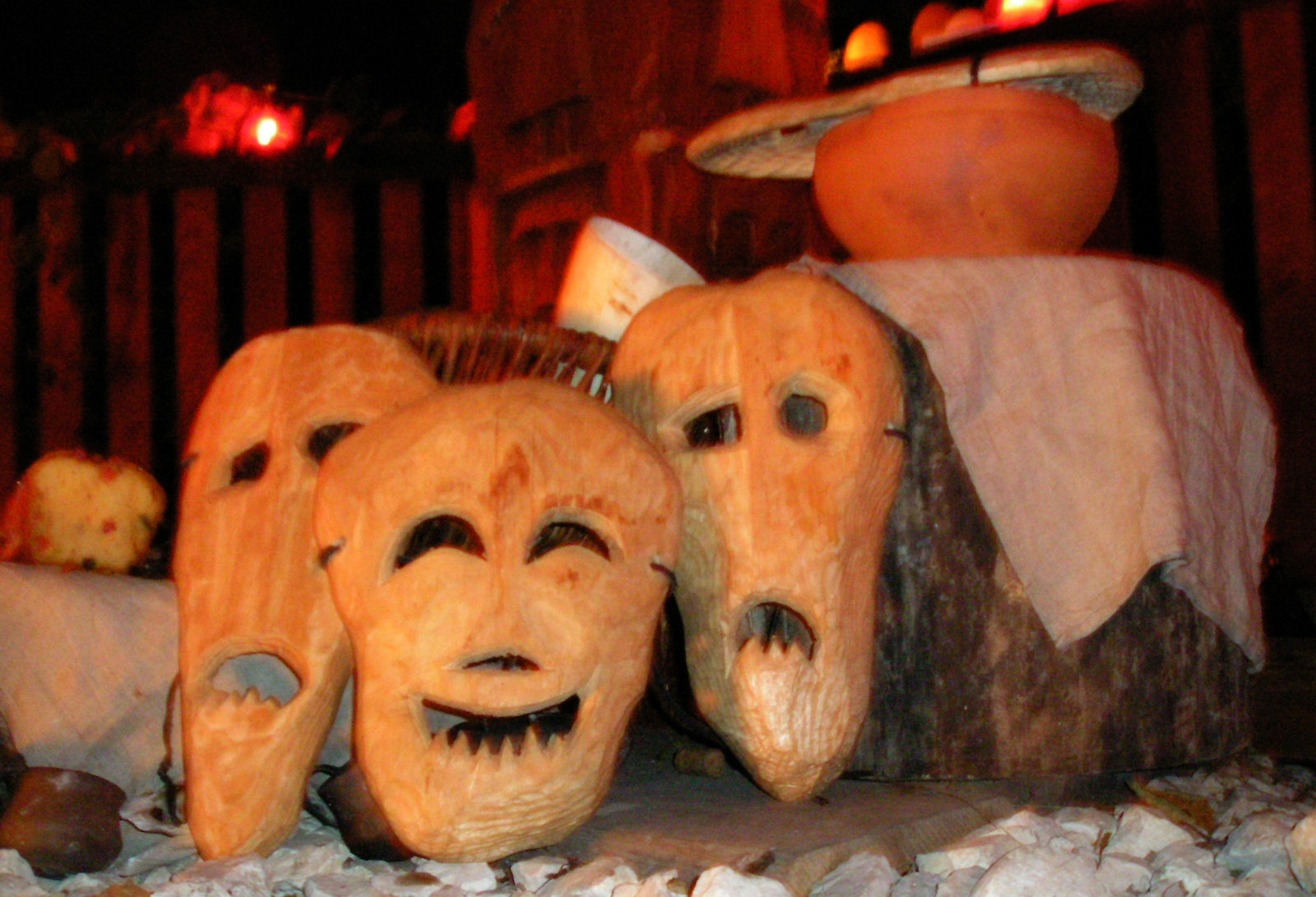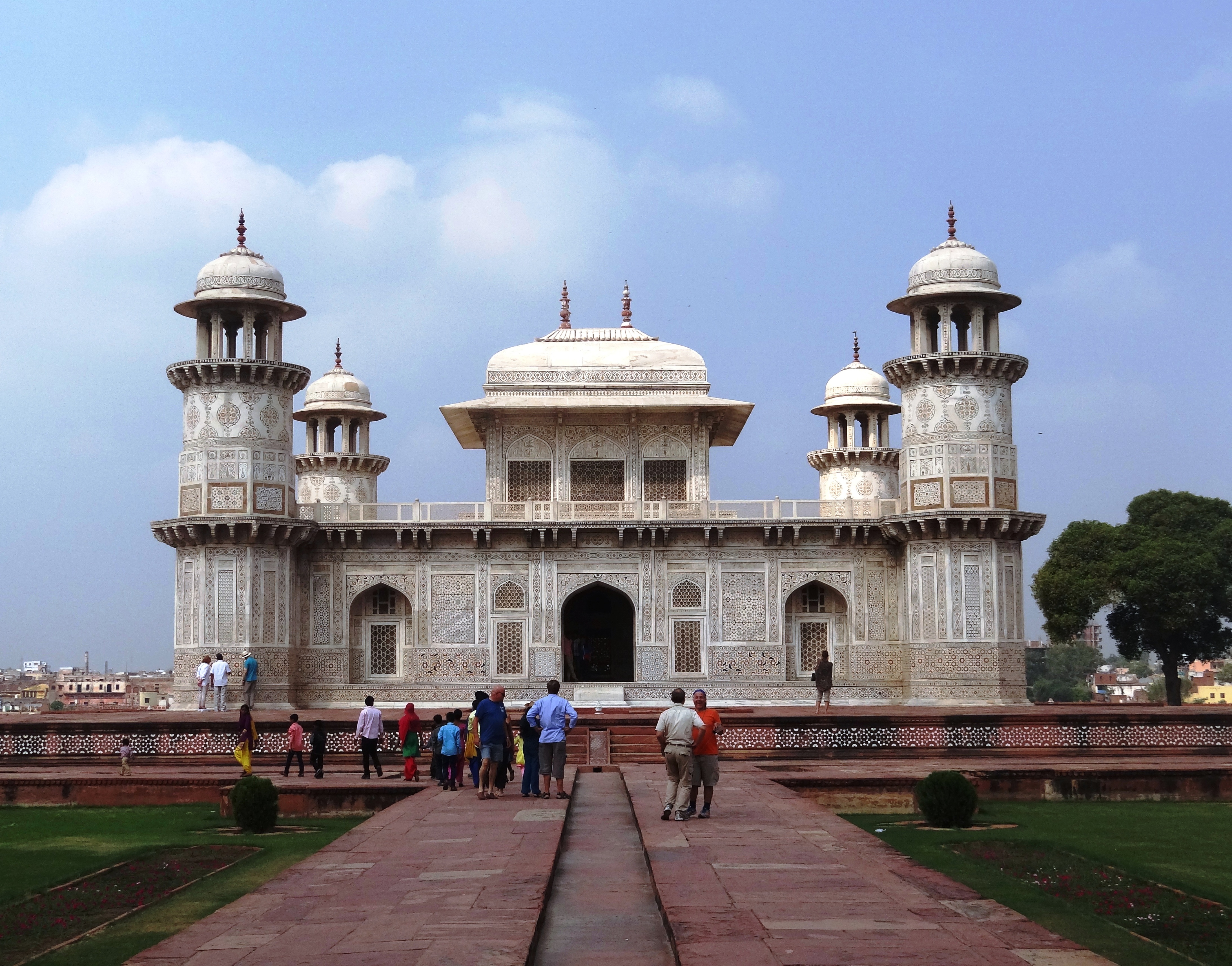|
Zaduszki
Zaduszki or Dzień Zaduszny is a Polish language, Polish name for the Commemoration of All the Faithful Departed (All Souls' Day) on 2 November. The word ''Zaduszki'' originating from ''Dzień Zaduszny'', can be roughly translated into English as "the day of prayers for the souls". On this day people visit cemeteries to light candles and pray for the souls of their faithful departed, especially those believed to be in purgatory. The annual celebration in the liturgical year of All Souls' day was standardized and put on 2 November by St. Odilo of Cluny by the end of the 10th century. In 1311, by the decision of the Holy See, All Souls' Day was introduced into the Roman Rite and the General Roman Calendar. In folk understanding, All Saints' Day was viewed as the eve of the main commemoration of ''Dzień Zaduszny'', when most folk customs and rituals took place. It was believed that during the days of Zaduszki in the autumn, the spirits of deceased relatives visited their old ... [...More Info...] [...Related Items...] OR: [Wikipedia] [Google] [Baidu] |
Dziady
Dziady ( Belarusian: , Russian: , Ukrainian: , pl, Dziady; lit. "grandfathers, eldfathers", sometimes translated as Forefathers' Eve) is a term in Slavic folklore for the spirits of the ancestors and a collection of pre-Christian rites, rituals and customs that were dedicated to them. The essence of these rituals was the "communion of the living with the dead", namely, the establishment of relationships with the souls of the ancestors, periodically returning to their headquarters from the times of their lives. The aim of the ritual activities was to win the favor of the deceased, who were considered to be caretakers in the sphere of fertility. The name "dziady" was used in particular dialects mainly in Poland, Belarus, Polesia, Russia and Ukraine (sometimes also in border areas, e.g. Podlachia, Smoleńsk Oblast, Aukštaitija), but under different other names (''pomynky'', ''przewody'', '' radonitsa'', '' zaduszki'') there were very similar ritual practices, common among Slavs ... [...More Info...] [...Related Items...] OR: [Wikipedia] [Google] [Baidu] |
All Saints' Day
All Saints' Day, also known as All Hallows' Day, the Feast of All Saints, the Feast of All Hallows, the Solemnity of All Saints, and Hallowmas, is a Christian solemnity celebrated in honour of all the saints of the church, whether they are known or unknown. From the 4th century, feasts commemorating all Christian martyrs were held in various places, on various dates near Easter and Pentecost. In the 9th century, some churches in the British Isles began holding the commemoration of all saints on 1 November, and in the 9th century this was extended to the whole Catholic church by Pope Gregory IV. In Western Christianity, it is still celebrated on 1 November by the Roman Catholic Church as well as many Protestant churches, as the Lutheran, Anglican, and Methodist traditions. The Eastern Orthodox Church and associated Eastern Catholic and Eastern Lutheran churches celebrate it on the first Sunday after Pentecost. The Syro-Malabar Church and the Chaldean Catholic Church, bot ... [...More Info...] [...Related Items...] OR: [Wikipedia] [Google] [Baidu] |
Tomb Of The Volga (1874)
A tomb ( grc-gre, τύμβος ''tumbos'') is a repository for the remains of the dead. It is generally any structurally enclosed interment space or burial chamber, of varying sizes. Placing a corpse into a tomb can be called ''immurement'', and is a method of final disposition, as an alternative to cremation or burial. Overview The word is used in a broad sense to encompass a number of such types of places of interment or, occasionally, burial, including: * Architectural shrines – in Christianity, an architectural shrine above a saint's first place of burial, as opposed to a similar shrine on which stands a reliquary or feretory into which the saint's remains have been transferred * Burial vault – a stone or brick-lined underground space for multiple burials, originally vaulted, often privately owned for specific family groups; usually beneath a religious building such as a church ** Cemetery ** Churchyard * Catacombs * Chamber tomb * Charnel house * Chur ... [...More Info...] [...Related Items...] OR: [Wikipedia] [Google] [Baidu] |
Northern Macedonia
North Macedonia, ; sq, Maqedonia e Veriut, (Macedonia before February 2019), officially the Republic of North Macedonia,, is a country in Southeast Europe. It gained independence in 1991 as one of the successor states of Yugoslavia. It is a landlocked country bordering Kosovo to the northwest, Serbia to the north, Bulgaria to the east, Greece to the south, and Albania to the west. It constitutes approximately the northern third of the larger geographical region of Macedonia. Skopje, the capital and largest city, is home to a quarter of the country's 1.83 million people. The majority of the residents are ethnic Macedonians, a South Slavic people. Albanians form a significant minority at around 25%, followed by Turks, Romani, Serbs, Bosniaks, Aromanians and a few other minorities. The region's history begins with the kingdom of Paeonia, a mixed Thraco- Illyrian polity. In the late sixth century BC, the area was subjugated by the Persian Achaemenid Empire, then inco ... [...More Info...] [...Related Items...] OR: [Wikipedia] [Google] [Baidu] |
November Observances
November is the eleventh and penultimate month of the year in the Julian and Gregorian Calendars, the fourth and last of four months to have a length of 30 days and the fifth and last of five months to have a length of fewer than 31 days. November was the ninth month of the calendar of Romulus . November retained its name (from the Latin ''novem'' meaning "nine") when January and February were added to the Roman calendar. November is a month of late spring in the Southern Hemisphere and late autumn in the Northern Hemisphere. Therefore, November in the Southern Hemisphere is the seasonal equivalent of May in the Northern Hemisphere and vice versa. In Ancient Rome, Ludi Plebeii was held from November 4–17, Epulum Jovis was held on November 13 and Brumalia celebrations began on November 24. These dates do not correspond to the modern Gregorian calendar. November was referred to as Blōtmōnaþ by the Anglo-Saxons. Brumaire and Frimaire were the months on which Nove ... [...More Info...] [...Related Items...] OR: [Wikipedia] [Google] [Baidu] |
Slovak Traditions
Slovak may refer to: * Something from, related to, or belonging to Slovakia (''Slovenská republika'') * Slovaks, a Western Slavic ethnic group * Slovak language, an Indo-European language that belongs to the West Slavic languages * Slovak, Arkansas, United States See also * Slovák, a surname * Slovák, the official newspaper of the Slovak People's Party Hlinka's Slovak People's Party ( sk, Hlinkova slovenská ľudová strana), also known as the Slovak People's Party (, SĽS) or the Hlinka Party, was a far-right Clerical fascism, clerico-fascist political party with a strong Catholic fundamentali ... * {{disambiguation, geo Language and nationality disambiguation pages ... [...More Info...] [...Related Items...] OR: [Wikipedia] [Google] [Baidu] |
Serbian Traditions
The Serbs have many traditions. The Slava is an exclusive custom of the Serbs, each family has one patron saint that they venerate on their feast day. The Serbian Orthodox Church uses the traditional Julian Calendar, as per which Christmas Day (December 25) falls currently on January 7 of the Gregorian Calendar, thus the Serbs celebrate Christmas on January 7, shared with the Orthodox churches of Jerusalem, Russia, Georgia, Ukraine and the Greek Old Calendarists. Hospitality Traditionally, honored guests in a Serbian home are greeted with bread and salt and/or a spoonful of '' Slatko''. Furthermore, it is common for guests to bring something sweet to the host when going on a visit, even if they're only stopping by for a short time. Art Music Folklor Serbian epic poetry Christian Slava Slava ( sr-Cyrl, слава), also called krsna slava () and krsno ime (, "christened name"), is the Serbian Orthodox tradition of the veneration and observance of the family's patron sa ... [...More Info...] [...Related Items...] OR: [Wikipedia] [Google] [Baidu] |
Russian Traditions
Russian traditions, superstitions and beliefs include superstitions and customs of Russians. Many of them are now inseparable parts of everyday life, or simply common social etiquette, though they often have their origins in superstition. Awareness of them, and their perceived importance, depends on various factors including region and age. Some are extremely common and practiced by the vast majority of the population, while some are extremely obscure and could be more regional. Customs that are more often regarded as superstition *Hands that itch are an omen that one will come into wealth. *Before leaving for a long journey, travelers, and all those who are seeing them off, must sit for a moment in silence before leaving the house. It is often conveniently written off as a time to sit and think of anything one may have forgotten. Another version of the superstition states that the traveler must sit for a moment on or beside their suitcase. It is often said "let's sit down before ... [...More Info...] [...Related Items...] OR: [Wikipedia] [Google] [Baidu] |
Polish Traditions
Polish may refer to: * Anything from or related to Poland, a country in Europe * Polish language * Poles Poles,, ; singular masculine: ''Polak'', singular feminine: ''Polka'' or Polish people, are a West Slavic nation and ethnic group, who share a common history, culture, the Polish language and are identified with the country of Poland in C ..., people from Poland or of Polish descent * Polish chicken * Polish brothers (Mark Polish and Michael Polish, born 1970), American twin screenwriters Polish may refer to: * Polishing, the process of creating a smooth and shiny surface by rubbing or chemical action ** French polishing, polishing wood to a high gloss finish * Nail polish * Shoe polish * Polish (screenwriting), improving a script in smaller ways than in a rewrite See also * * * Polonaise (other) {{Disambiguation, surname Language and nationality disambiguation pages ... [...More Info...] [...Related Items...] OR: [Wikipedia] [Google] [Baidu] |
Macedonian Traditions
Macedonian most often refers to someone or something from or related to Macedonia. Macedonian(s) may specifically refer to: People Modern * Macedonians (ethnic group), a nation and a South Slavic ethnic group primarily associated with North Macedonia * Macedonians (Greeks), the Greek people inhabiting or originating from Macedonia, a geographic and administrative region of Greece * Macedonian Bulgarians, the Bulgarian people from the region of Macedonia * Macedo-Romanians (other), an outdated and rarely used anymore term for the Aromanians and Megleno-Romanians, both being small Eastern Romance ethno-linguistic groups present in the region of Macedonia * Macedonians (obsolete terminology), an outdated and rarely used umbrella term to designate all the inhabitants of the region, regardless of their ethnic origin, as well as the local Slavs and Macedo-Romanians, as a regional and ethnographic communities and not as a separate ethnic groups Ancient * Ancient Macedonians ... [...More Info...] [...Related Items...] OR: [Wikipedia] [Google] [Baidu] |
Belarusian Traditions
Belarusian may refer to: * Something of, or related to Belarus * Belarusians, people from Belarus, or of Belarusian descent * A citizen of Belarus, see Demographics of Belarus * Belarusian language * Belarusian culture * Belarusian cuisine * Byelorussian Soviet Socialist Republic See also * * Belorussky (other) Belorussky (masculine), Belorusskaya (feminine), or Belorusskoye (neuter) may refer to: *Belorussky Rail Terminal, a rail terminal in Moscow, Russia *Belorussky (settlement), a settlement in Pskov Oblast, Russia *Belorusskaya-Koltsevaya, a station o ... {{disambig Language and nationality disambiguation pages ... [...More Info...] [...Related Items...] OR: [Wikipedia] [Google] [Baidu] |
.jpg)

.jpg)


